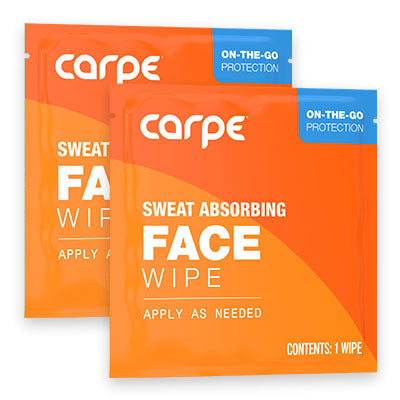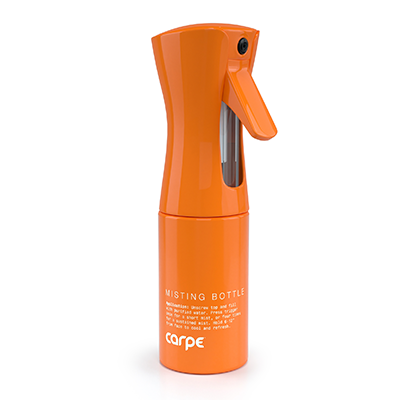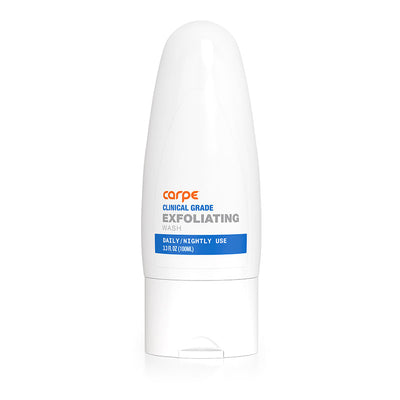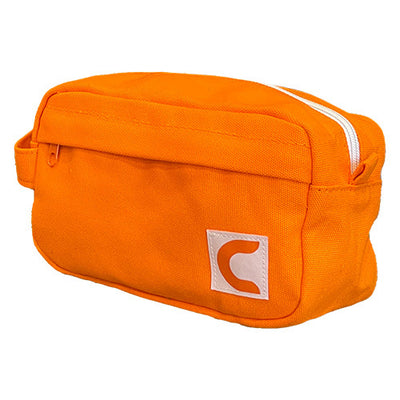The answer is “no” - you can’t cool your body off by wiping your sweat away. In order to understand why this is let’s take a look at how sweat removes body heat in the first place.
Sweating aids the body in maintaining its internal temperature, this process is known as thermoregulation. This means that sweat works with body temperature in a way that cools the body down. No other automatic physiological processes are able to cool the body down which makes sweating vital to human survival, especially in climates that get hot. Sweat is primarily produced by eccrine sweat glands which cover almost the entire surface of the skin. The body uses as much surface area as possible to maximize its ability to get rid of excess heat.[1]
Before the body initiates sweating, specialized cells in the skin called thermoreceptors sense what the temperature is. When these cells begin to sense that the body is too hot they send a message to a part of the brain called the hypothalamus through the central nervous system. The hypothalamus is the part of the brain that controls thermoregulation and is in charge of turning on and off processes that maintain a constant internal temperature between 91.76 and 100.72 degrees fahrenheit. If the body’s temperature goes above 107.6 degrees fahrenheit cell toxicity occurs, DNA synthesis is stalled, and organ failure begins to occur. Once the hypothalamus is alerted that the body is too hot it activates sympathetic cholinergic fibers which are part of the sympathetic nervous system that activate eccrine sweat glands. The sympathetic nervous system is responsible for activating the well-known “fight or flight” response.[2]
Once the hypothalamus starts sending out messages vasodilation occurs, a process in which blood vessels expand. Vasodilation allows heat to escape the body more readily as it brings blood closer to the surface of the skin. Slightly after this occurs, eccrine sweat glands begin producing sweat by taking water and small amounts of waste from the blood. Once a sweat gland has filled with water it releases it onto the surface of the skin. Sweat is then evaporated off the body which allows heat to be transferred to the environment as water vapor from respiratory passages and the skin surface. Essentially, sweating allows the body to remove heat energy from the blood, which goes deep inside the body, to the outside of the body at a rapid pace.[2] Evaporation is an essential part of the process as it is key to the transfer of heat from a person’s body to the external environment. It is thought that each gram of sweat a person produces dissipates about 2,427 joules of energy from the body.[3]
This is why wiping your sweat will not cool you off: you need evaporation to occur in order for the heat in sweat to be transferred into the environment. Evaporation pulls sweat out of the body when water droplets transfer into a gas form. Wiping sweat off the body does not have the same effect. In fact, wiping sweat off of your body will probably make it harder for the body to cool off because it is making the sweating process less effective. The body will have to produce more sweat to lower its body temperature because you are rendering the previous sweat useless when you wipe it off and less heat is transferred. This means that not only will wiping your sweat away make it harder for the body to cool itself, but it is also a good idea not to wipe off sweat when you exercise.[3]
However, when someone has a condition like primary focal hyperhidrosis, which can cause sweating in excess of what the body needs for thermoregulation, wiping sweat can be beneficial.[4] If you are sweating so much that it is dripping down your body then evaporation will be hindered by the fact that sweat is pooling anyways. In this case, wiping your sweat off probably won’t make too much of a difference and it might make you feel significantly less irritated. People with excess body weight can also struggle with sweat evaporation. This is because the surface area of their skin has increased, but not the density of sweat glands they have. This means their bodies have to produce more sweat to make up for difference between the size of their body and the lower amount of sweat glands they have proportionally. People with an increased body size also need to sweat more because it takes more energy for them to move around. This makes them more likely to have sweat pool, less likely to cool off, and leaves them more prone to dehydration. People who sweat excessively, for any reason, need to make sure that they replenish what their body loses when it sweats by drinking water and replacing electrolytes.[3]
Even though wiping your sweat away can hinder heat dissipation don’t worry if you really want to dry off. It will make your sweat less effective, but it won’t really hurt you either.
Sources
- Shibasaki, M., & Crandall, C. G. (2010). Mechanisms and controllers of eccrine sweating in humans. Front Biosci (Schol Ed), 292-296. Retrieved May 7, 2019, from https://www.ncbi.nlm.nih.gov/pmc/articles/PMC2866164/.
- Tansey, E. A., & Johnson, C. D. (2015). Recent advances in thermoregulation. American Physiological Society. Retrieved May 8, 2019, from https://physiology.org/doi/full/10.1152/advan.00126.2014
- Palmer, B. (2012, June 22). Let Them See You Sweat. The Slate. Retrieved May 8, 2019, from https://slate.com/technology/2012/06/should-you-wipe-away-your-sweat-or-does-that-keep-you-from-cooling-down
- Pariser, D. M. (2014). Hyperhidrosis (4th ed., Vol. 32). Philadelphia, PA: Elsevier.




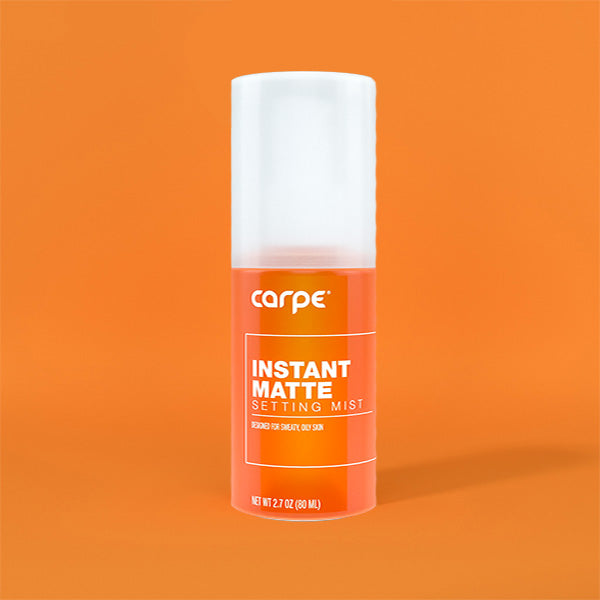

16790753702383.jpg?v=1679075372)

16790746985853.jpg?v=1679074700)


16790757289763.jpg?v=1679075731)







